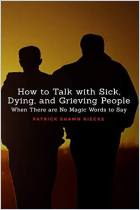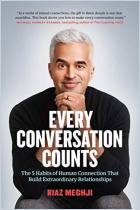When writer Dana Lacy Amarisa lost two children and her father within a 20-month period, she heard myriad well-meaning but insensitive condolences that invalidated her pain. In the grips of grief, she felt too “misunderstood,” “unseen,” and “vulnerable” to offer a retort. Once she pulled through the agony, she committed to studying and writing about why people bungle condolences. In a lively discussion with psychotherapist Nate Hinerman, Amarisa explains the essence of kind, useful, heartfelt condolences. Their insights will teach you how to show up for loved ones who are suffering.
Humans are often inept at extending condolences that actually comfort those who are suffering.
Years ago, writer Dana Lacy Amarisa met Mark — a friend of a friend — during a lunch date. When Mark unexpectedly told her that he had lung cancer, Amarisa panicked. “Are you a smoker?” she blurted out. Cringing at her insensitivity, she asked if she could try again to extend her condolences.
Later, when Amarisa’s infant daughter died, she gained firsthand experience of being on the receiving end of poorly delivered condolences. Friends’ well-meaning attempts to cheer her up — “Oh, you can have another baby” or “Well, at least she was only 13 days old, so you didn’t get too close” — unintentionally trivialized her pain. When she lost her father, Amarisa once again felt a huge divide between the support she longed for and the words she heard, which seemed to imply she ought to be less upset: “Your dad wouldn’t want you to be sad” and “Was it expected or was it sudden?”
Condolences fall flat mainly because people fear the grief the mourner is experiencing.
Condolences...
Writer Dana Lacy Amarisa is the founder of the Be A Bridge Condolences Project, which teaches how to console people who are grieving. Philosopher and psychotherapist Nate Hinerman teaches at the University of San Francisco.


























Comment on this summary or Iniciar a Discussão